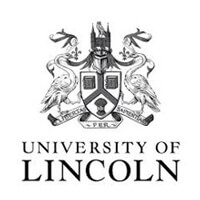fees waived
Law, LLB (Hons)
University of Lincoln, United Kingdom
Subject ranking
UK / CUG 2025 48th
UK / Guardian 2025 50th
UK / THE 2025 51st
Costs
food & rentS$17.1K / year
Entry requirements
Scholarships
Unlimited quantity
Unlimited quantity
Unlimited quantity
Unlimited quantity
Limited quantity
Limited quantity
Information
Code
Code
Intakes
Website (External)
Programmes
Information
Duration
2028
Course summary
The LLB (Hons) Law degree can be a popular choice for students looking for an exciting and challenging career. This degree covers core principles of the English legal system including criminal law, constitutional law and European Union law, and supports students to develop important legal skills. Lincoln’s LLB (Hons) Law degree has been designed to offer a fascinating and challenging programme of study, which can act as the first step towards a career in the legal profession. It aims to provide students with the key skills and knowledge which will enable them to go on and study towards qualifications as barristers or solicitors, should they choose to do so. Students have the opportunity to reflect upon policy, and the social, political, ethical, philosophical and cultural contexts in which law operates. Students may choose areas of law in which they have a particular interest in addition to the core modules. By the end of the course, it is expected that students will have had the opportunity to develop a broad legal education and a deeper understanding of the changing and dynamic nature of law and how it operates in practice. In the first year, students are encouraged to gain an understanding of the context of the English legal system – its origins, history and practices. Students have the opportunity to study constitutional and administrative law, contract law and tort law, whilst developing important practical legal skills such as mooting (simulated court proceedings). The core modules in the second year are Criminal Law, European Union Law and Land Law. Students can also choose areas of law in which they have a particular interest, in addition to the core modules. There are many options from which to choose, these may include Environmental Law, Intelligence and Security Law and Company Law. In the final year, students can learn about equity and trusts and have the opportunity to select further modules which may include Consumer Law, Employment Law, Law of Evidence, Law in Practice, and International Law. Students also have the option of writing a dissertation or having their voluntary work in the student-led Law Clinic recognised by undertaking a formal, assessed module. For the most up to date module information, please visit the course page for this programme on our website. Some programmes provide you with the opportunity to focus your study in a particular area through optional modules. Timetabling arrangements may limit the availability of some optional modules to some students. As the options often reflect staff research interests, they may alter over time due to staff availability. The way students will be assessed on this course will vary for each module. It could include coursework, such as a dissertation or essay, written and practical exams, portfolio development, group work or presentations to name some examples. Throughout this degree, students may receive tuition from professors, senior lecturers, lecturers, researchers, practitioners, visiting experts or technicians, and they may be supported in their learning by other students.Modules
Assessment method
In the first year, students are encouraged to gain an understanding of the context of the English legal system – its origins, history and practices. Students have the opportunity to study constitutional and administrative law, contract law and tort law, whilst developing important practical legal skills such as mooting (simulated court proceedings). The core modules in the second year are Criminal Law, European Union Law and Land Law. Students can also choose areas of law in which they have a particular interest, in addition to the core modules. There are many options from which to choose, these may include Environmental Law, Intelligence and Security Law and Company Law. In the final year, students can learn about equity and trusts and have the opportunity to select further modules which may include Consumer Law, Employment Law, Law of Evidence, Law in Practice, and International Law. Students also have the option of writing a dissertation or having their voluntary work in the student-led Law Clinic recognised by undertaking a formal, assessed module. For the most up to date module information, please visit the course page for this programme on our website. Some programmes provide you with the opportunity to focus your study in a particular area through optional modules. Timetabling arrangements may limit the availability of some optional modules to some students. As the options often reflect staff research interests, they may alter over time due to staff availability.
A local representative of University of Lincoln in Singapore is available online to assist you with enquiries about this course.

